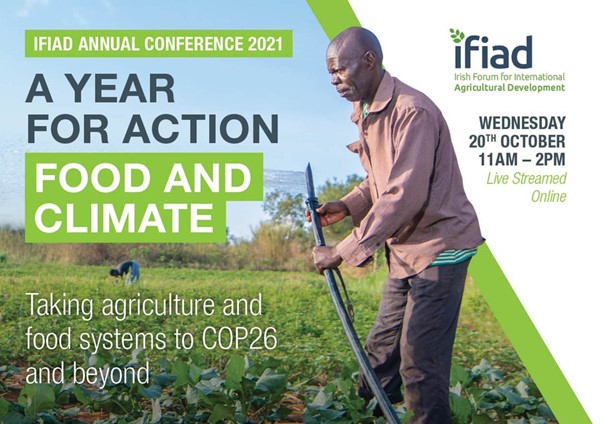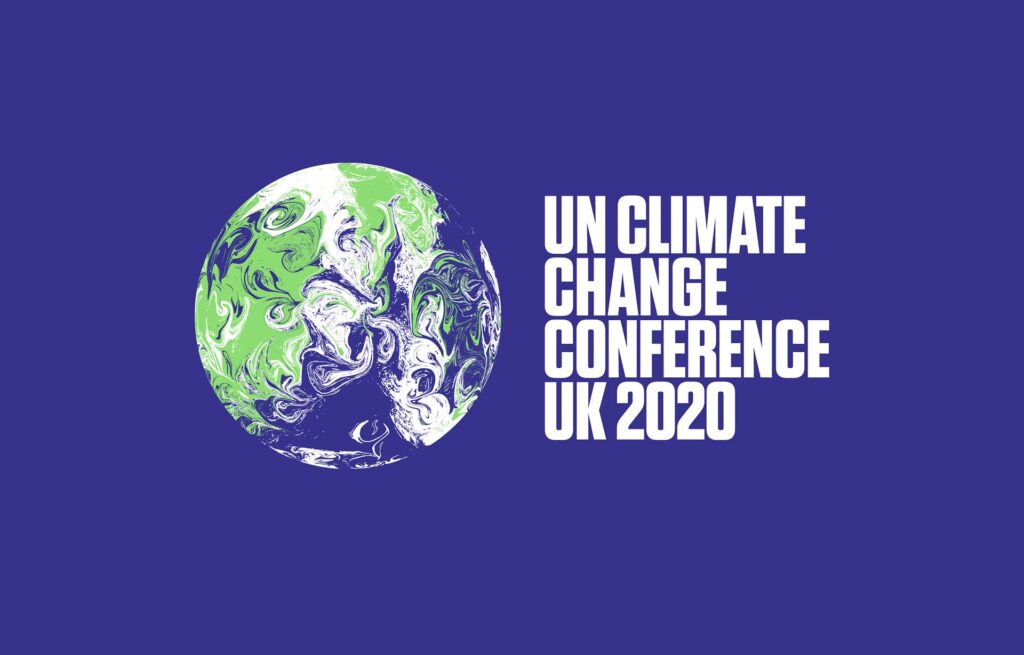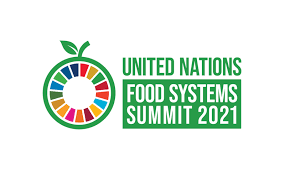“People have been adapting their systems ever since they started having systems”
(Mark Howden, IFIAD 2021 Annual Conference)
Stimulating, engaging, and thorough discussions surrounding the interconnectedness of food systems and climate action were thrashed out at the IFIAD 2021 Annual Conference. This year’s conference was based on the theme of “A Year of Action: Food and Climate. Taking agriculture and food systems to COP26 and beyond” in celebration of World Food Day and to continue the building momentum of the Food Systems Summit’s urgent plea to place food systems at the centre of climate discussions to carry forward into COP26.
The panel discussions at the IFIAD 2021 Annual Conference, serenely mediated by Áine Lawlor, were led by Maximo Torero Cullen, Chief Economist, Food and Agriculture Organisation of the United Nations (FAO), to revisit the outcomes of the Food Systems Summit and by Professor Mark Howden, Vice Chair of the Intergovernmental Panel on Climate Change (IPCC) to provide insights into how agriculture and food systems can support climate change mitigation and adaptation.
Although there was multitude of pressing matters discussed, the key issues raised at the IFIAD 2021 Annual Conference were centred around inclusive dialogues for the realisation of multi-sectoral and multi-disciplinary collaboration, issues surrounding trust in sustainable food systems, transparent decision making that is human rather than technology focused, climate as a risk multiplier, the necessary trickle-down of funding to small-holder farmers, and the mindset reset associated with systems thinking towards food.

There was a resounding sense of agreement surrounding the key issues of accurate representation, trust, transparency, climate finance and necessary behavioural changes. However, in keeping with the global hesitancy to combat climate change issues due to the intrinsic highly contextual nature of adaptation and mitigation efforts and the differing interests, beliefs and backgrounds of participants, there were some areas of polarisation and lack of consensus identified at the IFIAD 2021 Annual Conference.
Similar to the criticism faced by the Food Systems Summit, which was thought by some to have had a larger representation of large, private sector companies rather than emphasis on small and medium enterprises, environmental and health sectors, or other marginalised voices in the food system; there was a hint of a rebuttal when it was suggested that this also applies to Ireland’s Food Vision 2030 decision-making processes. In addition, the importance of international trade systems, to developing countries in particular, was another area of polarisation. Does the importation of foreign goods such as Irish dairy products into West Africa “fill the gap” or provide a source of competition that is impossible to compete with locally due to the lack of funding?
There also seemed to be differing timescales used in relation to the idea of “building back better after Covid-19”. Is there still time to implement structural and behavioural changes to come out of the pandemic with more climate-focused decision making or is it too late already? Most notably however was the lack of consensus surrounding the effectiveness of the Food Systems Summit and the importance of the upcoming COP26. There was a suggestion that maybe the key to realising change lies in the importance of local politics, active voting, and the day-to-day political activities that can implement necessary shifts rather than the meeting of leaders at events such as COP26.
In general, the IFIAD 2021 Annual Conference successfully managed to address the majority of the goals of both the Food Systems Summit and COP26 with an emphasis on the need to accelerate action to combat the climate crisis through strong collective action to facilitate meaningful multi-stakeholder participation. The main discussions in relation to the Food Systems Summit were centred around the 5 Action Areas; to nourish all people, boost nature-based solutions of production, advance equitable livelihoods, decent work and empowered communities, build resilience to vulnerabilities, shocks and stresses, and means of implementation, but also the crucial need to quantity the trade-offs of pathways with a systems approach.
There were elements of the Food Systems Summit that were very briefly alluded to such as the wasting reset, the mass of support that has emerged behind new ideas and approaches to address conflict, and if necessary national dialogues following the summit have taken place. Key issues for the Food Systems Summit that could have been further discussed at the conference include considering the action area of nourishing all people in a national level, especially with the recent interest surrounding UCCSU’s Food Bank and raising awareness for the hungry in Ireland. In relation to COP26, the IFIAD 2021 Annual Conference offered solid background information on the current levels of GHG emissions globally, the need to increase farming efficiency to reduce emissions, and the role of incorporating renewable energy systems into farming systems.
Although COP is generally known for bold emission cuts and sometimes empty promises, the take-home message from the IFIAD 2021 Annual Conference in relation to COP26 mitigation and adaptation efforts is that there is an opportunity to trade emissions between sectors to where it is most appropriate but also that methane and nitrous oxide emissions do not have to go to net-zero, which may offer hope to some in need of it.


